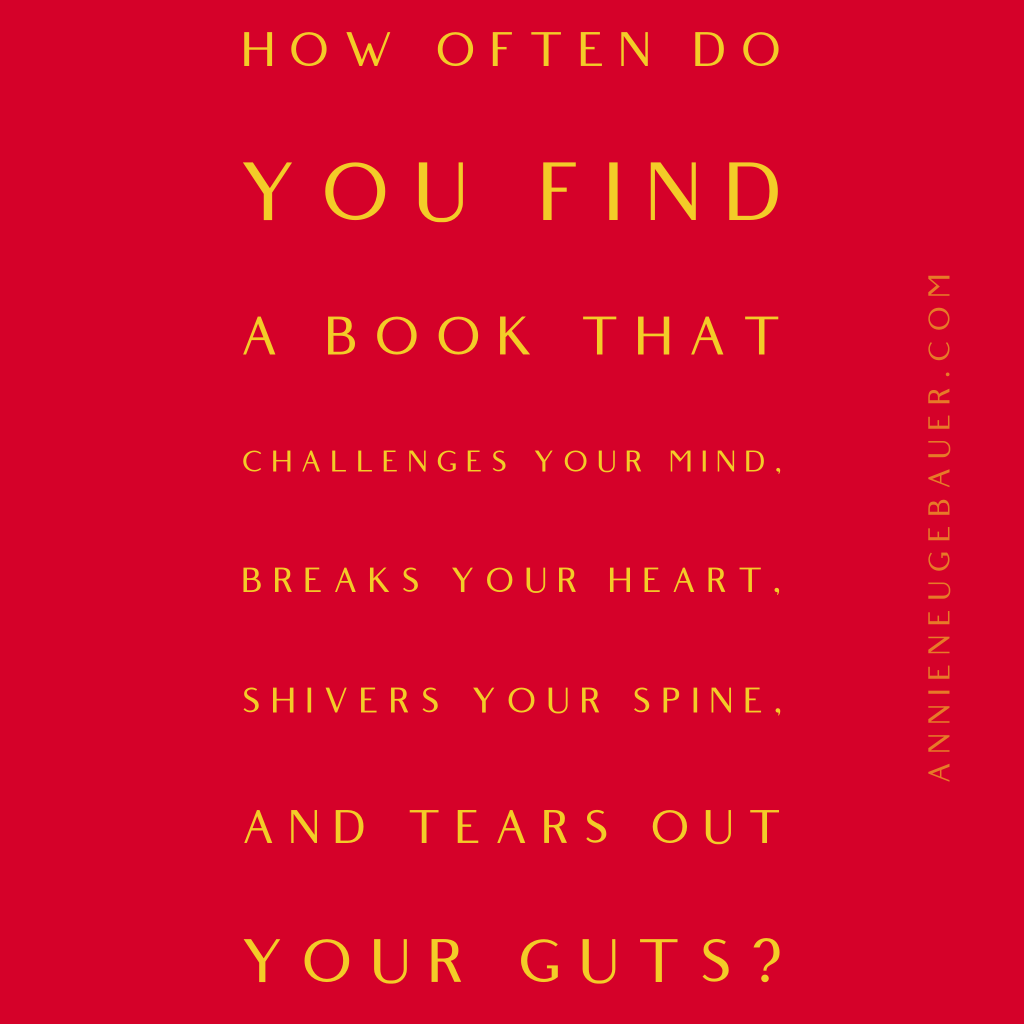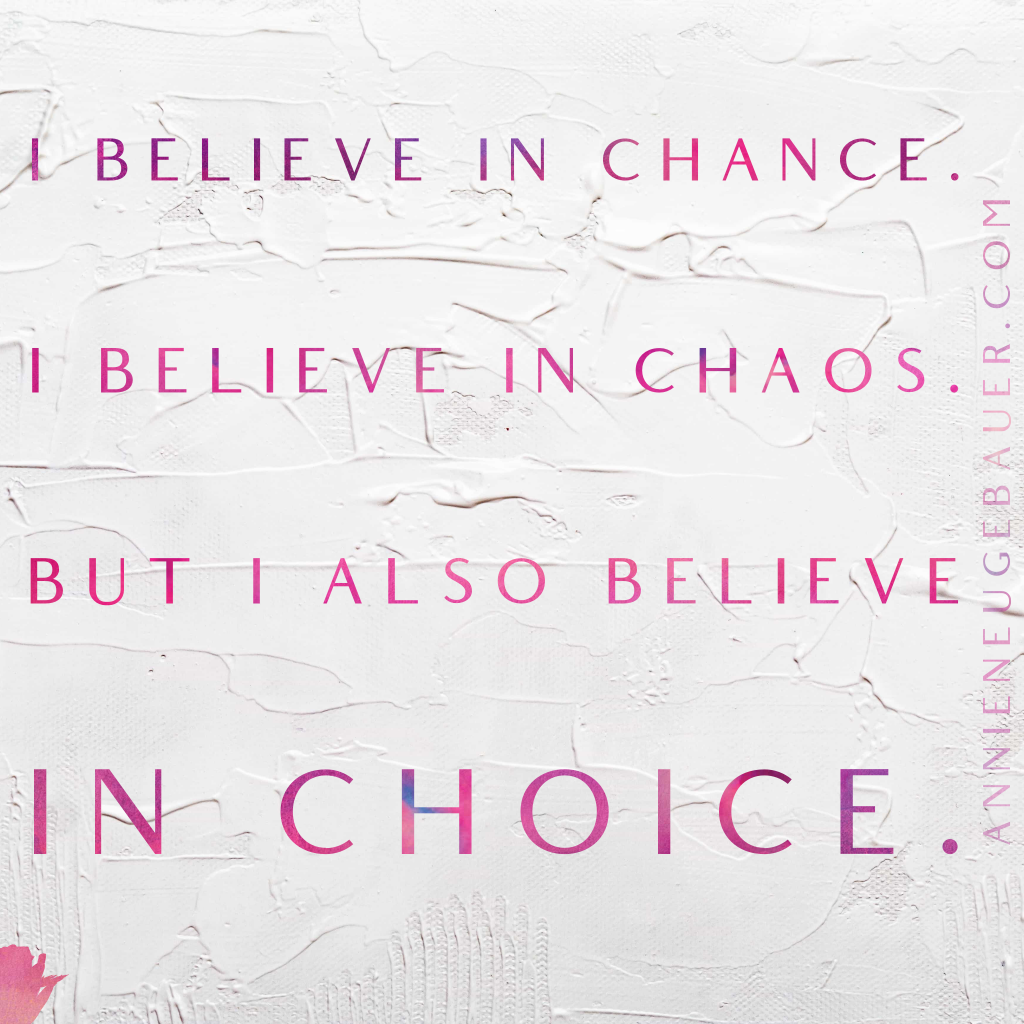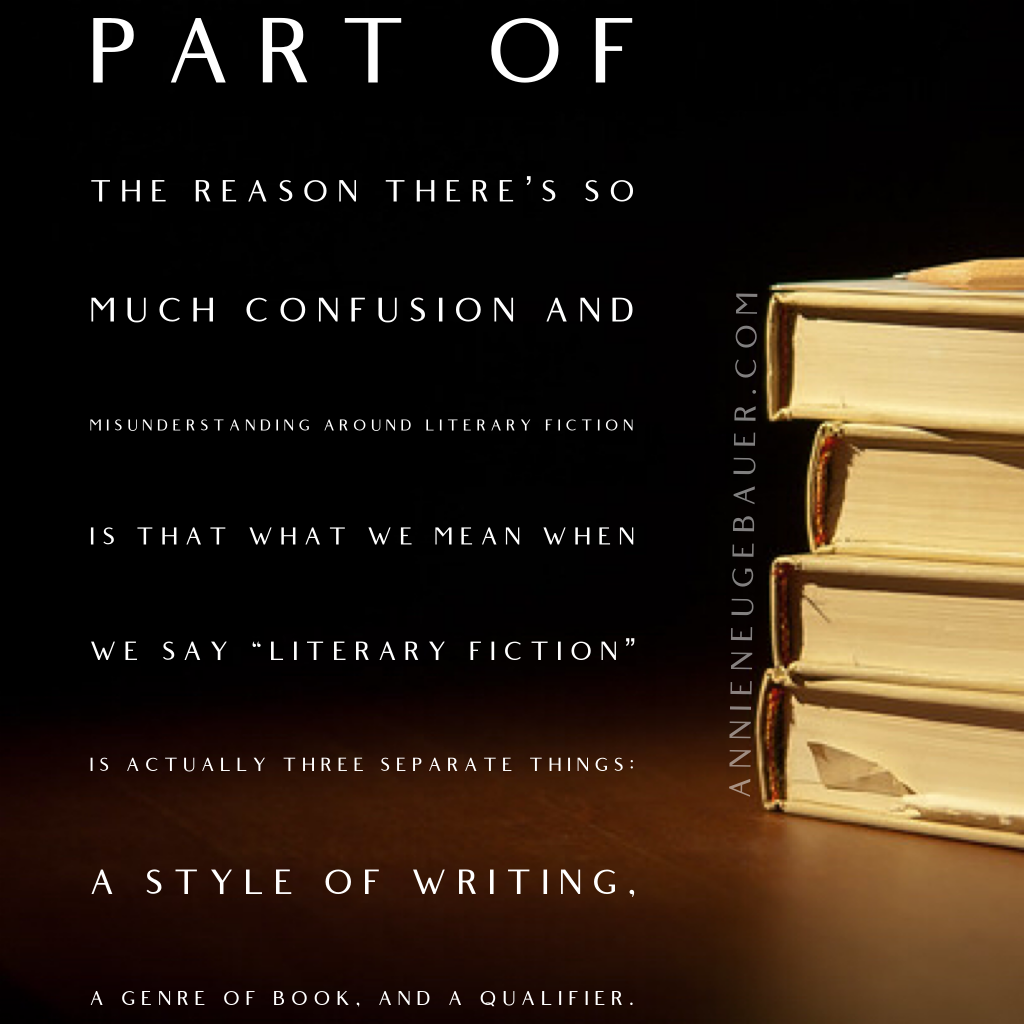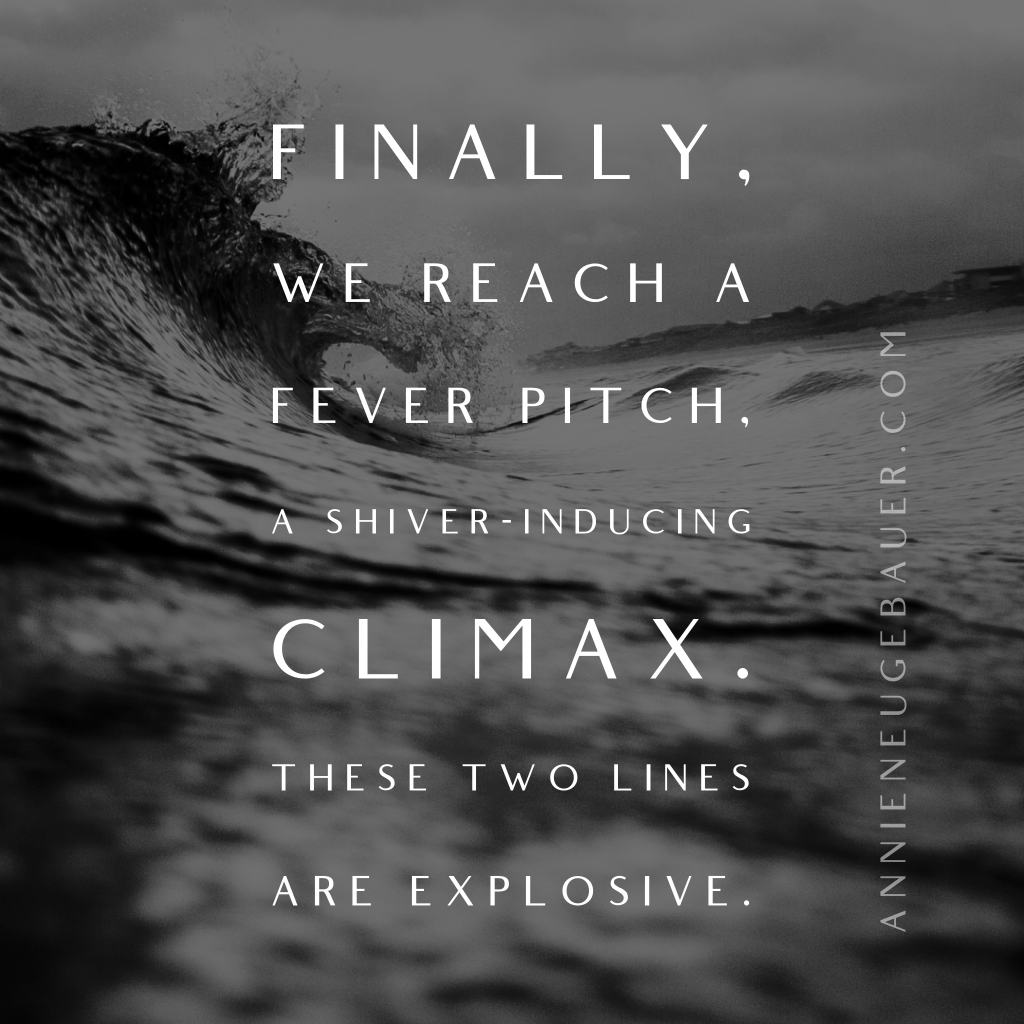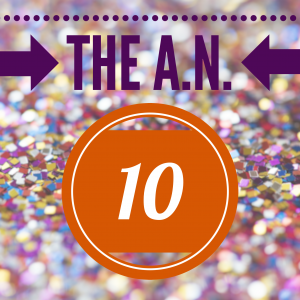 My sixth pick for The A.N. 10 reaaaaally makes me want to re-read a favorite novel. “Thoughts on Beloved by Toni Morrison and Horror’s Literary Problem” is one of those posts that hasn’t gotten enough attention. Not that my post is just that amazing (honestly, it’s mostly fangirling!), but because the topic is so important and I wish I could make more people take notice.
The most important part is that Beloved is incredible. It’s a top-top book, and I talk all about why in the post. But there are also issues of bias, discrimination, genre, and literature tied up in it. Y’all know how passionate I am about this stuff. I hope you’ll go give it a read (or re-read), and then I hope you’ll pick up Beloved if you haven’t already.
The post is linked below. And don’t forget to subscribe to my blog to get the final 4 “A.N. 10” highlights in your email! (Put annie@annieneugebauer.com in your approved senders list to make sure my blogs don’t get lost in spam.)
My sixth pick for The A.N. 10 reaaaaally makes me want to re-read a favorite novel. “Thoughts on Beloved by Toni Morrison and Horror’s Literary Problem” is one of those posts that hasn’t gotten enough attention. Not that my post is just that amazing (honestly, it’s mostly fangirling!), but because the topic is so important and I wish I could make more people take notice.
The most important part is that Beloved is incredible. It’s a top-top book, and I talk all about why in the post. But there are also issues of bias, discrimination, genre, and literature tied up in it. Y’all know how passionate I am about this stuff. I hope you’ll go give it a read (or re-read), and then I hope you’ll pick up Beloved if you haven’t already.
The post is linked below. And don’t forget to subscribe to my blog to get the final 4 “A.N. 10” highlights in your email! (Put annie@annieneugebauer.com in your approved senders list to make sure my blogs don’t get lost in spam.)
The A.N. 10 #6: The Great American Novel is a Horror Novel (Deal with It)
 My sixth pick for The A.N. 10 reaaaaally makes me want to re-read a favorite novel. “Thoughts on Beloved by Toni Morrison and Horror’s Literary Problem” is one of those posts that hasn’t gotten enough attention. Not that my post is just that amazing (honestly, it’s mostly fangirling!), but because the topic is so important and I wish I could make more people take notice.
The most important part is that Beloved is incredible. It’s a top-top book, and I talk all about why in the post. But there are also issues of bias, discrimination, genre, and literature tied up in it. Y’all know how passionate I am about this stuff. I hope you’ll go give it a read (or re-read), and then I hope you’ll pick up Beloved if you haven’t already.
The post is linked below. And don’t forget to subscribe to my blog to get the final 4 “A.N. 10” highlights in your email! (Put annie@annieneugebauer.com in your approved senders list to make sure my blogs don’t get lost in spam.)
My sixth pick for The A.N. 10 reaaaaally makes me want to re-read a favorite novel. “Thoughts on Beloved by Toni Morrison and Horror’s Literary Problem” is one of those posts that hasn’t gotten enough attention. Not that my post is just that amazing (honestly, it’s mostly fangirling!), but because the topic is so important and I wish I could make more people take notice.
The most important part is that Beloved is incredible. It’s a top-top book, and I talk all about why in the post. But there are also issues of bias, discrimination, genre, and literature tied up in it. Y’all know how passionate I am about this stuff. I hope you’ll go give it a read (or re-read), and then I hope you’ll pick up Beloved if you haven’t already.
The post is linked below. And don’t forget to subscribe to my blog to get the final 4 “A.N. 10” highlights in your email! (Put annie@annieneugebauer.com in your approved senders list to make sure my blogs don’t get lost in spam.)
Posted in The A.N. 10
Comments Off on The A.N. 10 #6: The Great American Novel is a Horror Novel (Deal with It)
The A.N. 10 #5: What’s in a Name? Ah, Poetry
 My fifth pick for The A.N. 10 has a deceptively specific title: “Titling Poems.” Poetry advice is surprisingly popular, yes, but it’s nothing compared to advice on writing in general. I think that’s why today’s A.N. 10 post is one of the most traffic-searched posts on my blog: writers want help coming up with titles! (A runner up for this series was my list “25 Beautiful Unique Book Titles.”)
I actually think this post has many functions. Of course the main one is to help poets in the process of titling their poems. It includes tips, warnings, and brainstorming prompts. But I also think it’s a roundabout way of discussing poetry and the importance of titles from a reader’s perspective, too. When’s the last time you paid attention to a title and really asked yourself what its value is? Last but not least, these titling tips can apply to far more than just poems. There’s plenty of food for thought here about titling short stories, novels, blog posts, essays, lectures, and more.
I was also very honored to have the New Zealand Poetry Society pick up this post and reprint it as a feature article in their publication, a fine line magazine May 2017. Nothing makes me happier than something I’ve put out there continuing to find new readers!
The post is linked below. And don’t forget to subscribe to my blog to get the final 5 “A.N. 10” highlights in your email! (Put annie@annieneugebauer.com in your approved senders list to make sure my blogs don’t get lost in spam.)
My fifth pick for The A.N. 10 has a deceptively specific title: “Titling Poems.” Poetry advice is surprisingly popular, yes, but it’s nothing compared to advice on writing in general. I think that’s why today’s A.N. 10 post is one of the most traffic-searched posts on my blog: writers want help coming up with titles! (A runner up for this series was my list “25 Beautiful Unique Book Titles.”)
I actually think this post has many functions. Of course the main one is to help poets in the process of titling their poems. It includes tips, warnings, and brainstorming prompts. But I also think it’s a roundabout way of discussing poetry and the importance of titles from a reader’s perspective, too. When’s the last time you paid attention to a title and really asked yourself what its value is? Last but not least, these titling tips can apply to far more than just poems. There’s plenty of food for thought here about titling short stories, novels, blog posts, essays, lectures, and more.
I was also very honored to have the New Zealand Poetry Society pick up this post and reprint it as a feature article in their publication, a fine line magazine May 2017. Nothing makes me happier than something I’ve put out there continuing to find new readers!
The post is linked below. And don’t forget to subscribe to my blog to get the final 5 “A.N. 10” highlights in your email! (Put annie@annieneugebauer.com in your approved senders list to make sure my blogs don’t get lost in spam.)
Titling Poems
Posted in The A.N. 10, Uncategorized
Comments Off on The A.N. 10 #5: What’s in a Name? Ah, Poetry
The A.N. 10 #4: Choose Your Own Adventure
 My fourth pick for The A.N. 10 is one that still surprises me a little: “Creating the Life We Want.” It surprises me that it struck such a chord with people. It surprises me that I published it (not wrote it, but published it). And it surprises me that it’s not actually as personal as I remember it being.
I guess the part I remember being so intimate was the part that I ultimately deleted, which I talk about in the post itself. What’s left is more philosophy than detail, and that’s a philosophy that I still very much believe in and try to live by. Clearly, based on folks’ reactions, I’m not the only one. It’s a bit of a departure from most of my later posts, which tend to focus more on books and less on my private life, but that’s a good thing sometimes.
The post is linked below, if you’d like to check it out. And don’t forget to subscribe to my blog to get the next 6 “A.N. 10” highlights in your email! (Put annie@annieneugebauer.com in your approved senders list to make sure my blogs don’t get lost in spam.)
My fourth pick for The A.N. 10 is one that still surprises me a little: “Creating the Life We Want.” It surprises me that it struck such a chord with people. It surprises me that I published it (not wrote it, but published it). And it surprises me that it’s not actually as personal as I remember it being.
I guess the part I remember being so intimate was the part that I ultimately deleted, which I talk about in the post itself. What’s left is more philosophy than detail, and that’s a philosophy that I still very much believe in and try to live by. Clearly, based on folks’ reactions, I’m not the only one. It’s a bit of a departure from most of my later posts, which tend to focus more on books and less on my private life, but that’s a good thing sometimes.
The post is linked below, if you’d like to check it out. And don’t forget to subscribe to my blog to get the next 6 “A.N. 10” highlights in your email! (Put annie@annieneugebauer.com in your approved senders list to make sure my blogs don’t get lost in spam.)
Creating the Life We Want
Posted in Updates & Announcements
Comments Off on The A.N. 10 #4: Choose Your Own Adventure
The A.N. 10 #3: It’s Literary, Dahling
 My third pick for The A.N. 10 is another popular favorite: “What Is Literary Fiction?” This post is the way that many people originally find my blog. (You wouldn’t believe how many people google the phrase “what is literary fiction?”!)
I wrote this one sort of framed as defending literary fiction, because I hear a lot of my commercial fiction writer friends dismiss it entirely. But then I went on to write its counterpoint, “What Is Commercial Fiction?“, because the literati are no less judgmental. And then I went on to write “The Differences Between Commercial and Literary Fiction” because I really just want everyone to get along.
Alas, when it comes to books and genres, I fear folks may never join hands and sing kumbaya. Until that fateful day, it’s fun to share my take on what makes things what. For those of us who just want to understand the labeling system and make sense of why certain books get called certain things, my What Is Genre series has become a really cool ongoing discussion.
The lit-fic post is linked below, if you’d like to join that discussion yourself; everyone is welcome! And don’t forget to subscribe to my blog to get the next 7 “A.N. 10” highlights in your email! (Put annie@annieneugebauer.com in your approved senders list to make sure my blogs don’t get lost in spam.)
My third pick for The A.N. 10 is another popular favorite: “What Is Literary Fiction?” This post is the way that many people originally find my blog. (You wouldn’t believe how many people google the phrase “what is literary fiction?”!)
I wrote this one sort of framed as defending literary fiction, because I hear a lot of my commercial fiction writer friends dismiss it entirely. But then I went on to write its counterpoint, “What Is Commercial Fiction?“, because the literati are no less judgmental. And then I went on to write “The Differences Between Commercial and Literary Fiction” because I really just want everyone to get along.
Alas, when it comes to books and genres, I fear folks may never join hands and sing kumbaya. Until that fateful day, it’s fun to share my take on what makes things what. For those of us who just want to understand the labeling system and make sense of why certain books get called certain things, my What Is Genre series has become a really cool ongoing discussion.
The lit-fic post is linked below, if you’d like to join that discussion yourself; everyone is welcome! And don’t forget to subscribe to my blog to get the next 7 “A.N. 10” highlights in your email! (Put annie@annieneugebauer.com in your approved senders list to make sure my blogs don’t get lost in spam.)
What Is Literary Fiction?
Posted in The A.N. 10
Comments Off on The A.N. 10 #3: It’s Literary, Dahling
The A.N. 10 #2: I Guess No One Told Me I’m Done with College
 Pssst, before I tell you today’s A.N. 10 pick, I wanted to let you know that there’s a new album up at The Decorative Writer! My good friend (and amazing author) Lisa Bubert is sharing her swoon-worthy attic office with us! It has the best wall color, a hilarious kitten, and lots of great personal touches. Go check out her amazing writing space! And thanks to Lisa for letting us snoop in her gorgeous room!
Okay, back to our regularly scheduled programming. My second pick for The A.N. 10 is one that never gained the big popularity of some of my other choices, but it’s a personal favorite: “Unpack the Poem: ‘Inland’ by Edna St. Vincent Millay.” It’s a favorite because I got to know a poem I already loved on a crazy deep level, it was so much fun to write, and I’m still very proud of how it turned out.
True fact: it also shows what an enormous scholastic dork I am, because no one made me (or even asked me) to do a deep literary analysis of this poem. What can I say? I miss school.
But don’t worry, college-weary friends; this one requires nothing on your part but an interest in good literature and an eye to seeing it picked apart. Bonus: you’re welcome to judge my interpretations and conclusions as much as you want, and no one will give you any homework. 😉
Bonus bonus: I recorded a reading of the poem, too, so if nothing else I hope you’ll go listen to a truly gorgeous piece of work (the poem, not my reading). Poetry is meant to be heard!
The full post is below. And don’t forget to subscribe to my blog to get the next 8 “A.N. 10” highlights in your email! (Put annie@annieneugebauer.com in your approved senders list to make sure my blogs don’t get lost in spam.)
Pssst, before I tell you today’s A.N. 10 pick, I wanted to let you know that there’s a new album up at The Decorative Writer! My good friend (and amazing author) Lisa Bubert is sharing her swoon-worthy attic office with us! It has the best wall color, a hilarious kitten, and lots of great personal touches. Go check out her amazing writing space! And thanks to Lisa for letting us snoop in her gorgeous room!
Okay, back to our regularly scheduled programming. My second pick for The A.N. 10 is one that never gained the big popularity of some of my other choices, but it’s a personal favorite: “Unpack the Poem: ‘Inland’ by Edna St. Vincent Millay.” It’s a favorite because I got to know a poem I already loved on a crazy deep level, it was so much fun to write, and I’m still very proud of how it turned out.
True fact: it also shows what an enormous scholastic dork I am, because no one made me (or even asked me) to do a deep literary analysis of this poem. What can I say? I miss school.
But don’t worry, college-weary friends; this one requires nothing on your part but an interest in good literature and an eye to seeing it picked apart. Bonus: you’re welcome to judge my interpretations and conclusions as much as you want, and no one will give you any homework. 😉
Bonus bonus: I recorded a reading of the poem, too, so if nothing else I hope you’ll go listen to a truly gorgeous piece of work (the poem, not my reading). Poetry is meant to be heard!
The full post is below. And don’t forget to subscribe to my blog to get the next 8 “A.N. 10” highlights in your email! (Put annie@annieneugebauer.com in your approved senders list to make sure my blogs don’t get lost in spam.)
Unpack the Poem: “Inland” by Edna St. Vincent Millay
Posted in The A.N. 10
Comments Off on The A.N. 10 #2: I Guess No One Told Me I’m Done with College

